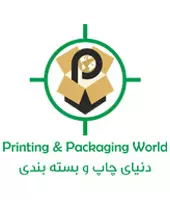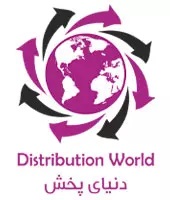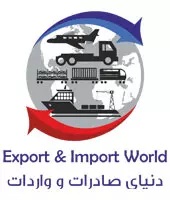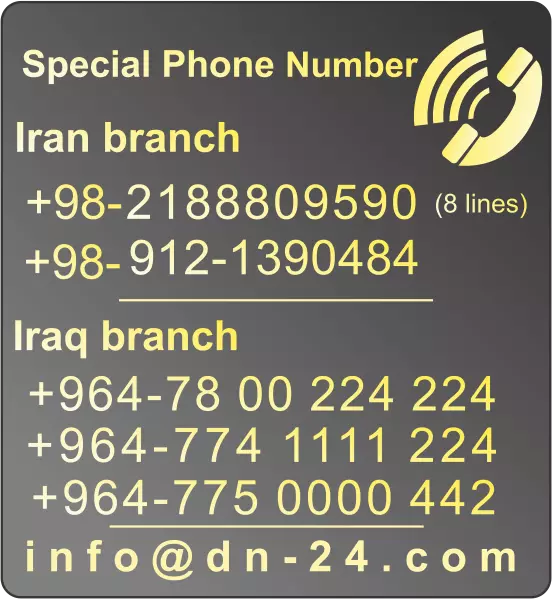- Chapter1 -Consulting and Marketing
- Chapter2 – Designing, Photography, Filmmaking
- Chapter3 – Printing, Packaging, Post-print
- Chapter 4- Environmental Advertising and Exhibition Services
- Chapter 5 – Audiovisual Advertising and Electronic Marketing
- Chapter 6 – Advertising gifts
- Chapter 7- The world of distribution
- Chapter 8- Export and Import
Import
Import actually means the arrival of goods, which of course is not the only product in question, and this word is also used in the field of services. Import means that a product is imported from a specific country into a specific customs territory in another country. For this action, there is a need to exchange currency between the country of origin and the country of destination, and of course there is also a third country, which in simple words, currency is exchanged between the seller and the buyer. In general, there are 4 categories in the field of import.
 |  |
 |  |
1- Definitive Import
In the field of import and export, there is generally an issue called definitive import, which includes several methods based on the method of payment for goods.
The first method in definitive import is to import the goods from the place where the currency was purchased. So that banking systems are used to open credit; another type is related to imports with free currency, in which credit is also opened in this process. In the definitive import list, there is an issue as import versus export, which is done in the name of the exporting person from the place of the export license, which cannot be assigned. Imports in the form of foreign exchange without foreign investment are also included in this list, which is approved by economic affairs.
2- Temporary Import
This type of import and export, which is clear from its name, works in such a way that some goods enter the country in a certain way and need to be taken out of the country at a certain time. This option has been seen many times for foreign goods that need to be used in international exhibitions at a certain time. Filming devices and photography are a clear example of this type of import and export. In fact, the customs contract is temporary.
3- Returned Goods
The third part of import and export is related to returned goods, and in general, this issue is very important in import and export laws; goods that have been imported into the country, but need to be returned for various reasons. In fact, the returned goods are in the list of uncertain imports and it is obvious that they are considered temporary.
4- Foreign and Domestic Transit
Foreign transit means that foreign goods need to enter the territory of a country at a certain point and exit at another border point. This style of goods is never considered a definitive export or import.
For example, suppose a product is going to be imported from the border between Iran and Turkmenistan. This product must be exported to a third country at the sea borders of Iran and it needs to be loaded on a ship. Internal transit is about goods that have not been cleared by customs from the customs house so that they are transported to another customs house.
The process of Importing Goods
Here we discuss the process of importing goods from other countries.
- Inquiry in the world market of goods: The import process begins with an inquiry in the world market. Information can be obtained from trade associations. Finally, the companies that provide the required goods for export are discussed about the rate and terms of delivery and other matters.
- Obtaining an import permit: The importer must obtain an import permit. For this, you must have information about the need or lack of need and how to get permission.
- Obtaining foreign currency: In the next step, you need to obtain the currency of the country from which you want to import goods.
- Place an order: Place an order with exporters. Your order must contain detailed information about the color, design, quantity and other important information about the product.
- Letter of Credit: This is an important step in the import process. You receive a letter of credit from the bank that shows your credit. The letter of credit proves the authenticity and terms and conditions of your order.
- Receipt containing shipping information: Your exporter will send you a receipt containing shipping information such as ship name, invoice number, description of the shipped goods, etc.
- Sending import documents to the bank: According to the delivery of the goods, the import document is sent to the bank for further actions.
- Receiving delivery: export documents are received from the delivery agent.
- Customs clearance: The last and most tedious stage of the import process is related to customs clearance. You have to go through a lot of legal formalities to control imported goods.
Import Services
NewWorld International Holding is ready to sign contracts with foreign companies and enterprises to import goods or services into the country. The actions of NewWorld International Holding after signing the contract for importing goods or services are as follows:
1- Obtaining legal permits to import goods and services
2- Providing a solution for ease of import
3- Clearance of goods from the country’s customs and consultation with competent legal authorities
4- Consulting for distribution of goods or services in the country
5- Transportation of goods from legal borders to designated destinations
6- Submitting the goods receipt report and its transportation report to the origin company
7- Providing final information after the end of the operation
By using the best forces and legal ways, the NewWorld International Holding has made it possible for foreign companies and enterprises to supply their goods and services with the highest quality inside the country.
Imports of Goods Include:
– Food (bulk and packaging)
– Cosmetics, cellulose, detergent
– Medicines and medical equipment
– Paper, cardboard, paper pulp
– Packaging supplies
– Industrial machines and their spare parts
– Services (technology, technical and engineering, etc.)
Products categories
- Services
- Chapter1 -Consulting and Marketing
- Chapter2 - Designing, Photography, Filmmaking
- Chapter3 - Printing, Packaging, Post-print
- Part 5: Printing projects and related industries
- 5.1) Lithography
- 5.2) Offset printing
- 5.3) Digital printing
- 5.4) Printing PVC sheets
- 5.5)3D printing
- 5.6) Metallization printing
- 5.7) Talaq Printing
- 5.8) Print on fabric
- 5.9) Printing and burning CD
- 5.10) CNC and laser printing (engraving)
- 5.11) Gold blocking-hot stamping-embossed stamping
- 5.12) Tampo printing
- 5.13) Silk printing
- 5.14) Printing on metal
- 5.15) Printing on stone
- 5.16) Thermal printing
- 5.17) Roll printing
- 5.18) Large format printing
- 5.19) Seal and gelatin
- 5.20) Types of coatings
- 5.21) Molding
- 5.22) Stamping
- 5.23) Sticky box
- 5.24) Assembly
- 5.25) Post-press services
- 6. Technical office services
- 7. Binding
- part 8 - Holograms and Types of Labels
- 9. Packaging industries
- 9.1 Box
- 9.2 Board cover
- 9.3 Plexi boxes & Vaccum Forming
- 9.4 Fantasy boxes
- 9.5 Laminate and inner cover
- 9.6 Carton
- 9.7 Shrink
- 9.8 Air bubble nylon
- 9.9 Disposable food containers
- 9.10 Plastic containers
- 9.11 General format
- 9.12 Board can
- 9.13 Jar glass containers
- 9.14 Manufacturing sacks and industrial packets
- 9.15 Manufacturing and selling machineries
- 9.16 Food container
- part 10 - Shopping bag
- Part 5: Printing projects and related industries
- chapter4:Environmental Advertising and Exhibition Services
- Chapter 5 - Audiovisual Advertising and Electronic Marketing
- Chapter 6 - Advertising gifts
- part 24- Advertising gifts
- 24.1 Stationery
- 24-2 Stationary set
- Main brand stationary set
- Stationary set of CROSS brand
- Stationary set of SHEAFFER brand
- CANDID
- GHANARY desktop set
- Stationary set of WATERMAN
- Stationary set of PARKER
- Stationary set of HANSA
- Stationary set of PORTOK
- Stationary set of MELODY
- Stationary set of EUROPEN
- Stationary set of DIPLOMAT brand
- Stationary set of PIERRE CARDIN brand
- Miscellaneous brands' set (pen – fountain pen)
- Main brand stationary set
- 24.3 Card case
- 24.4 Keychain
- 24.5 Lighter
- 24.6 Ashtray
- 24.7 Main clothes (advertising cloth)
- 24.8 Subsidiary clothes
- 24.9 Advertising hat
- 24.10 advertising towel
- 24.11 Advertising cover
- 24.12 Advertising radio
- 24.13 Advertising clock and wristwatch
- 24.14 Advertising mug mat
- 24.15 Advertising mouse pad
- 24.16 Advertising car sunshade
- 24.17 Leather artifacts
- 24.18 Advertising document cover
- 24.19 Advertising folder and writing pad
- 24.20 Advertising index file and Zoonckan
- 24.21 Advertising bag and wallet
- 24.22 Advertising balloon
- 24.23 Advertising ruler
- 24.24 Advertising puzzle
- 24.25 Children's advertising gifts
- 24.26 Postcard
- 24.27 Advertising magnet (magnetic stickers)
- 24.28 Plexi file and bag
- 24.29 Advertising tissue and tissue box
- 24.30 Sculpture-pottery-tile
- 24.31 Advertising containers
- 24.32 Calculator
- 24.33 Office papers-fantasy paper-notepad
- 24.34 Lighting advertising gifts
- 24.35software gift
- 24.36 Advertising photo frame
- 24.37 Advertising photo album
- 24.38 Handicrafts
- 24.39 Special religious gifts
- 24.40 Doll making
- 24.41 Advertising tools
- 24.42 Women's special gifts
- 24-43) mobile accessory
- 24.44 Electronic gifts
- 24.45 Advertising hand fan
- 24.46 Special medical gifts
- 24.47 Advertising opener
- 24.48 Advertising (woven) carpet tableau
- 24.49 Advertising desktop set
- 24.50 Advertising air freshener
- 24.51 Umbrella
- 24.52 Advertising meter
- 24.53 Advertising tape dispenser
- 24.54 Optical advertising gifts
- 24.55 Advertising compass
- 24.56 Advertising thermometer
- 24.57 Automobile advertising gifts
- 24.58 Special gifts
- 24-59) Wooden promotional gifts
- part 25 - 26 - Almanac and telephone directory
- 27. Calendar
- part28- 27.1 Exquisite books
- part 24- Advertising gifts
- Chapter 7- The world of distribution
- Chapter 8- Export and Import
Online price inquiry
"*" indicates required fields
Quick access
- Chapter1 - Consulting and Marketing
- Chapter2 - Designing, Photography, Filmmaking
- Chapter3 - Printing, Packaging, Post-print
- Chapter4 - Environmental Advertising and Exhibition Services
- Chapter5 - Audiovisual Advertising and Electronic Marketing
- Chapter6 - Advertising gifts
- Chapter 7- The world of distribution
- Chapter 8- Export and Import











